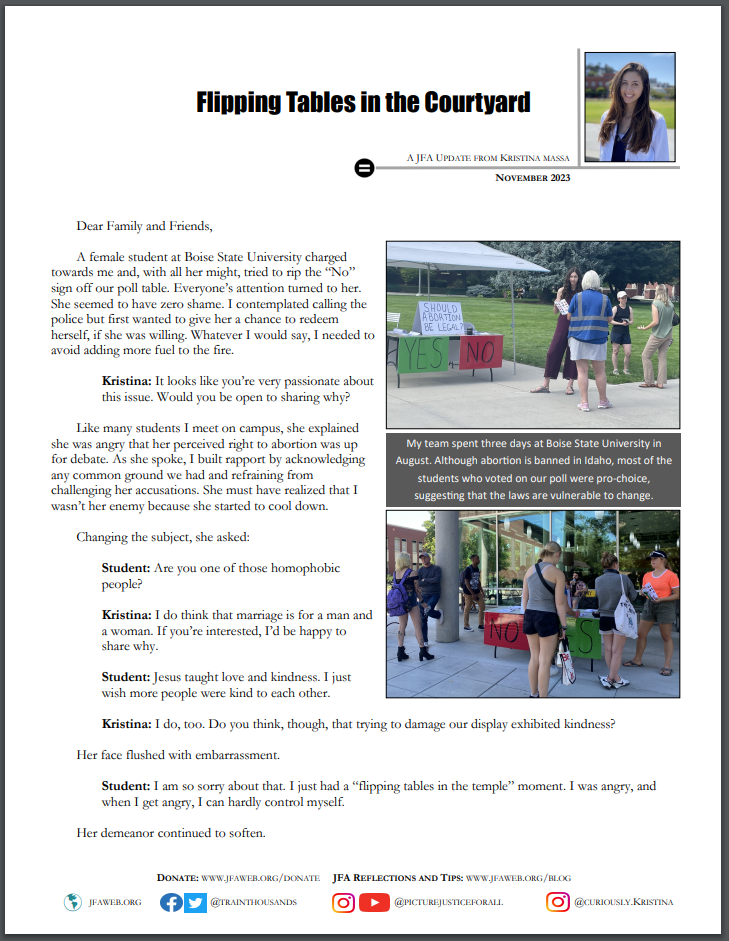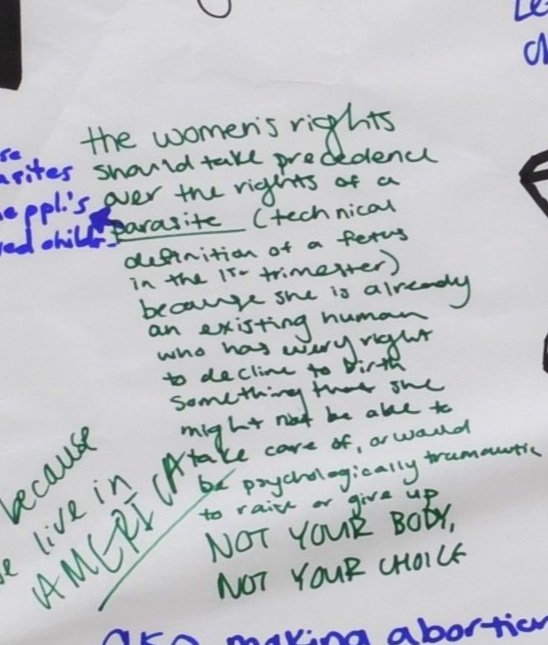Should We Flip-Flop When Someone Flips Out?
JFA trainer Kristina Massa was surprised when an angry young woman lashed out at a poll table sign at our outreach event at Boise State in the fall. She was even more surprised at the conversation that followed. Through her retelling in a recent letter, “Flipping Tables in the Courtyard” (enclosed, or see www.jfaweb.org/jan-2024), Kristina provides a great model for deciding “what to say when,” and she illustrates the sort of balanced approach all JFA trainers aim to exhibit in every conversation. Please read her letter, and then I’ll explain.
Note how Kristina doesn’t shy away from the young woman’s question about homosexuality and marriage. You might think this would lead to a distraction from the main topic. While controversial questions can be a distraction in some abortion conversations, in this instance addressing the topic turned out to be helpful.
Kristina answered the young woman’s questions directly and honestly, giving her the benefit of the doubt that she was asking in good faith and not intending to trap. Kristina didn’t try to hide her views on sexuality and marriage, even though she knew they were very controversial. She didn’t go weak-kneed or change her views because this woman had flipped out by “flipping tables” (her words). Instead, Kristina gave a straightforward answer with a reasonable explanation, and she also avoided expressing her views in an unnecessarily harsh way.
Then Kristina prayed with the young woman, banking on the fact that they shared similar backgrounds in Christian communities. Rather than focusing on the differences she definitely had with this woman regarding beliefs about God, Jesus, and how we should live, Kristina focused on the small sliver of common ground that this woman had implied earlier, that she did consider herself to be following Jesus.
With many people who vehemently disagree with us on difficult topics, we have found this approach to be disarming and bridge-building. In this case, I am guessing that this woman appreciated the fact that Kristina showed interest in a passion of hers. I believe the woman also felt dignified by Kristina’s decision to trust her with what she really thought.







